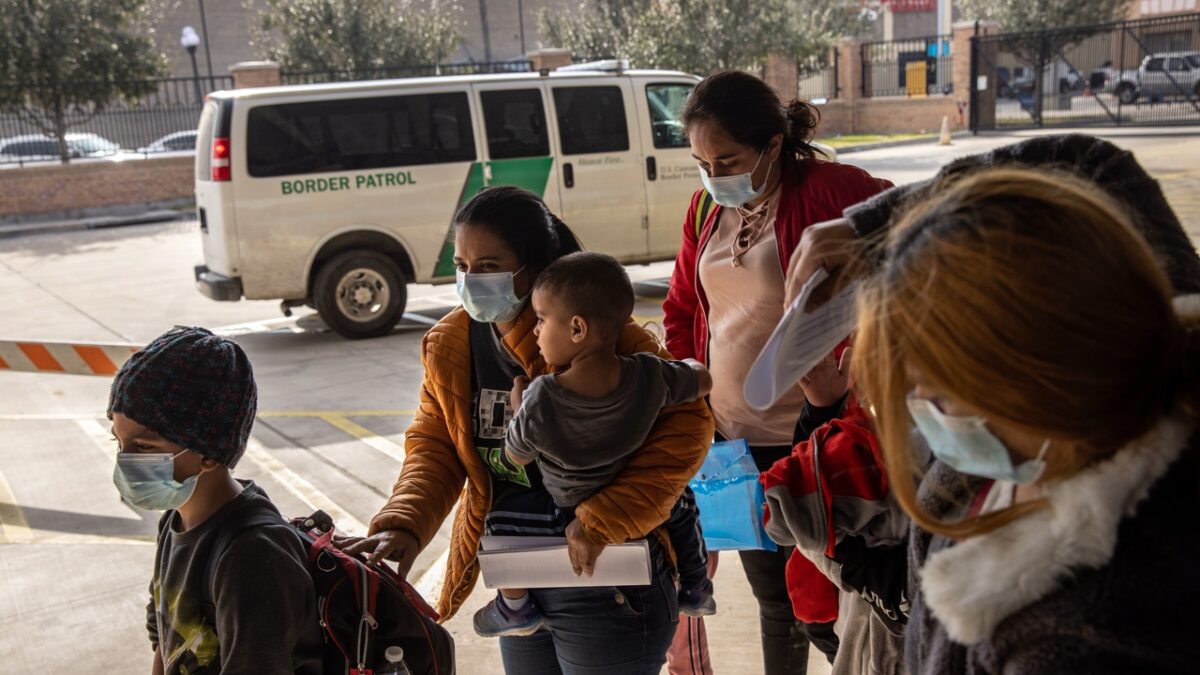Associated Press Internal Memo Tells Reporters Not to Call Situation at Border a ‘Crisis’

John Moore/Getty Images
In an internal memo, The Associated Press told reporters to avoid referring to the situation at the southern border of the United States a “crisis,” despite pressure from other news organizations to refer to the recent increase in unaccompanied minors with that nomenclature.
For several weeks, multiple news organizations have pressed President Joe Biden and his administration officials to refer to the situation as a “crisis,” (mostly) without success. But in an internal memo released to Futuro Media’s Julio Ricardo Varela, the widely-respected wire service instructed its reporters to avoid the word as well.
The memo, posted in a Twitter thread by Varela, summarizes the border situation in what it describes as “neutral” terms:
There has been a rise in unaccompanied minors crossing the southwestern U.S. border in the last two months since the start of the Biden administration. This follows a monthly increase in border crossings each month since April, or the last eight months of the Trump presidency. The current level of crossings in 2021 is roughly equal to the last upturn that occurred in mid-2019.
Migration has waxed and waned in recent years. The variability is tied to changes in economic and political conditions in the countries of origin and in the United States, as people decide whether the opportunities and risks justify making the attempt to try to cross into the United States. Some believe that the current increase is a product of regular seasonal fluctuation.
The memo goes on to instruct reporters not to use the term “crisis” except in narrow circumstances:
Here are some tips to language to use and not use:
“Crisis” The current event in the news — a sharp increase in the arrival of unaccompanied minors — is a problem for border officials, a political challenge for Biden and a dire situation for many migrants who make the journey, but it does not fit the classic dictionary definition of a crisis, which is: “A turning point in the course of anything; decisive or crucial time, stage, or event,” OR “a time of, or a state of affairs involving, great danger or trouble, often one which threatens to result in unpleasant consequences [an economic crisis] —SYN. Emergency.”
Therefore, we should avoid, or at the least, be highly cautious, about referring to the present situation as a crisis on our own, although we may quote others using that language.
If using the word “crisis,” we need to ask of what and to whom. There could be a humanitarian crisis if the numbers grow so large that officials cannot house the migrants safely or in sanitary conditions. Migrants may face humanitarian crises in their home countries. In theory, there could be a security or a border crisis if officials lose control of the border, allowing people to enter unencumbered in large numbers. But, in general, avoid hyperbole in calling anything a crisis or an emergency.
The AP released the memo to Varela as he was researching a Washington Post op-ed entitled “Stop using ‘surge’ and ‘wave’ to describe what’s happening at the border,” terms that were addressed elsewhere in the memo. AP’s editorial guidelines are influential and widely used by other publications.
You can read the full memo from Varela here.
New: The Mediaite One-Sheet "Newsletter of Newsletters"
Your daily summary and analysis of what the many, many media newsletters are saying and reporting. Subscribe now!






Comments
↓ Scroll down for comments ↓